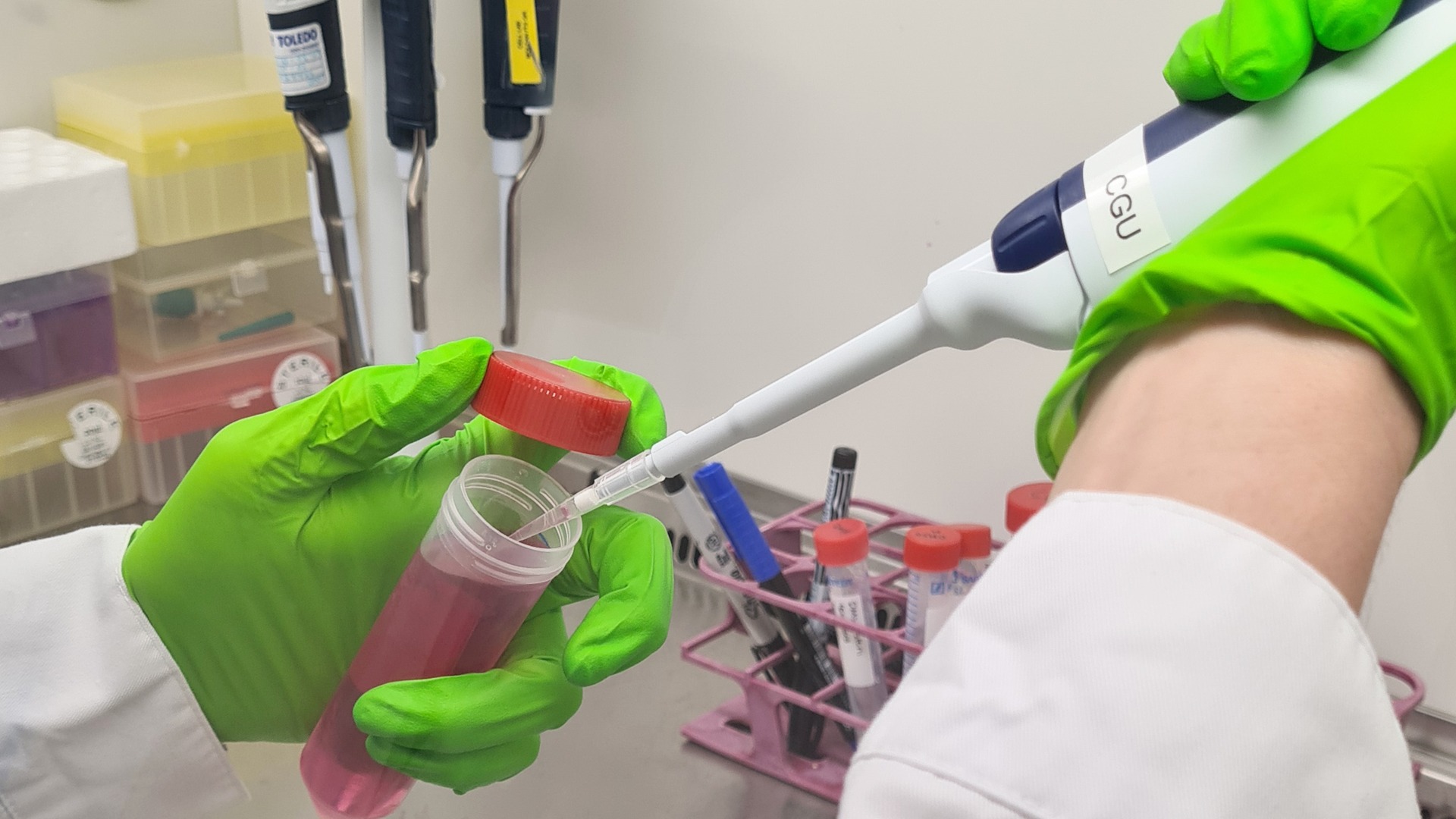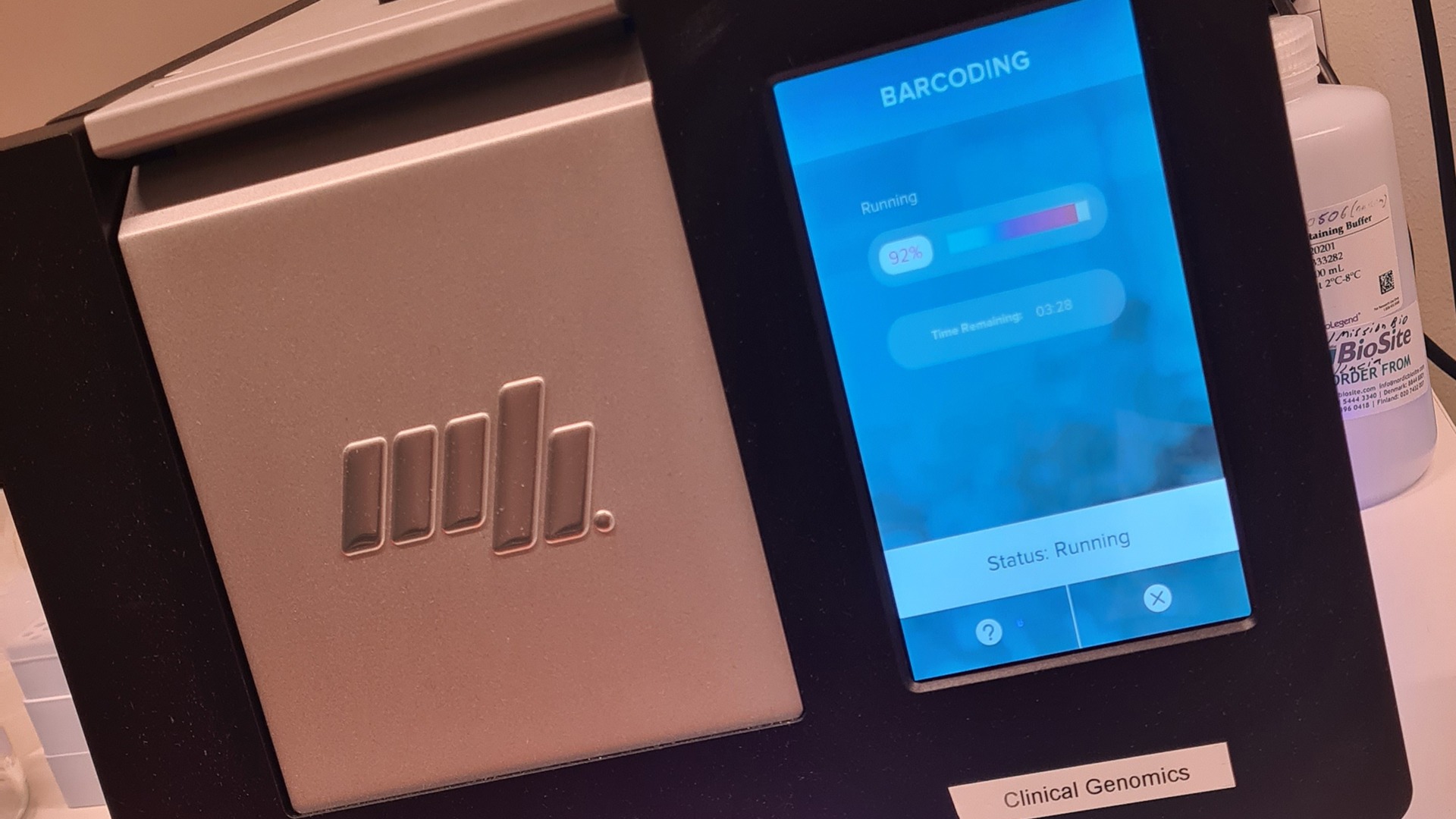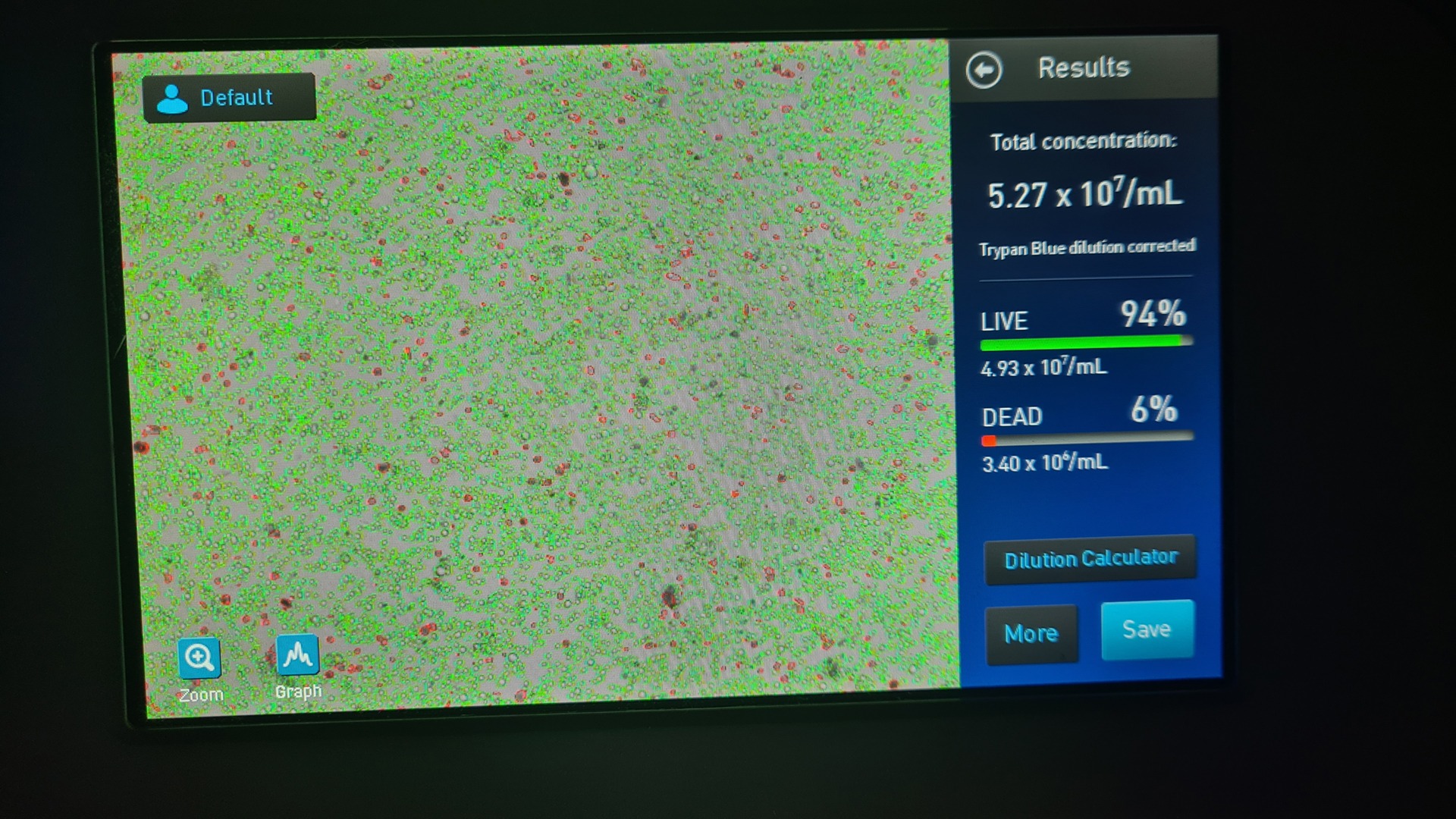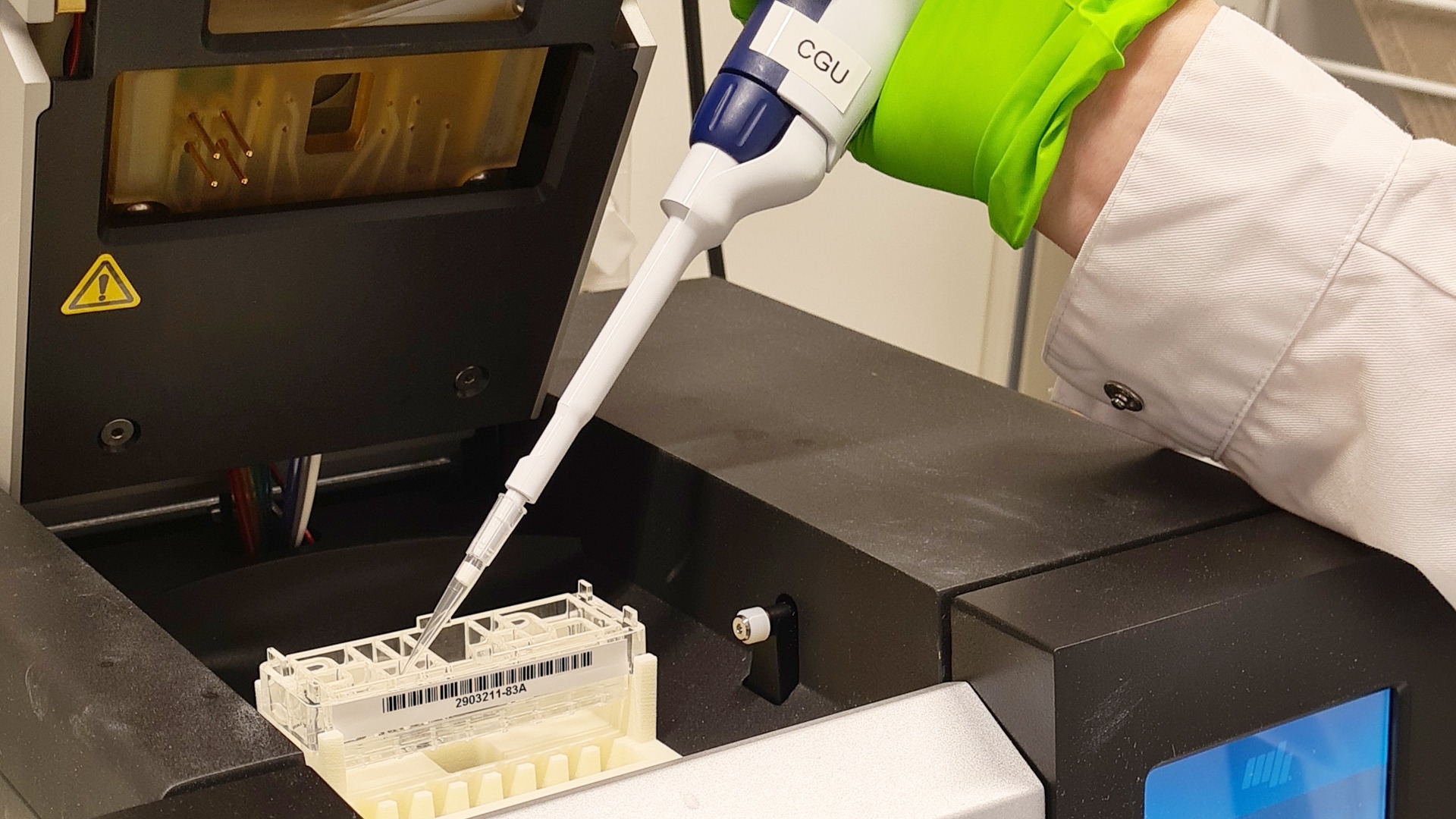Single-cell multi-omics service available at the CG platform
The Clinical Genomics facility in Uppsala has recently acquired the Tapestri instrument from Mission Bio and can now offer single-cell multi-omics services to cancer researchers. The new instrument makes simultaneous collection of genomic and protein data within the same cell, possible.
“With this technology we can offer the possibility to study for example tumor heterogeneity and the evolution of tumor subclones” says Simone Weström, research engineer at Clinical Genomics Uppsala and clinical molecular geneticist at Uppsala University Hospital.
In cancer research it is well known that tumors evolve over time by gaining different mutations which leads to a heterogeneity within one tumor. The different tumor cell clones behave differently, regarding for example aggressiveness or responsiveness to treatment. This makes it necessary to study tumor architecture at single-cell level to fully understand the characteristics of the disease.
The Mission Bio Tapestri platform is the only system that can provide genomic and protein data of the same cell, which connects the genotype and phenotype in each cell. The technology is based on microfluidics to compartmentalize a cell suspension into single cells for barcoding and PCR amplification. Sequencing is done with short-read next-generation sequencing (NGS) platforms. Through bioinformatics, the genetic variants and protein information are annotated to each cell. On the genomic level, single nucleotide variants (SNVs) and gene copy number variants (CNVs) can be studied with gene panels, pre-designed or custom designed.
“Mission Bio offers cutting edge technology and constantly develops and expands its products and applications which then can easily be integrated in our services. We offer customized solutions including library preparation, sequencing and data analysis” says Simone Weström.
In addition to genetic information, one can also analyze proteomics simultaneously. A predesigned antibody cocktail for hematological projects is available as well as custom designed antibody panels. All antibodies are tagged with oligos which makes them detectable through sequencing. To this end, a viable single cell solution is first stained with the desired oligo-tagged antibody cocktail, then the cells are individually encapsulated in oil emulsions, lysed, barcoded and finally subjected to targeted PCR with the desired gene panel.
“A dream project would be to use the new instrument to develop methods that can prevent cancer relapses”, says Simone Weström. “To analyze enough tumor samples to be able to characterize the expansion of different tumor clones under treatment and to pinpoint the mechanisms for resistance and finally be able to prevent relapses”.
To learn more or use the service, contact Clinical Genomics Uppsala.








